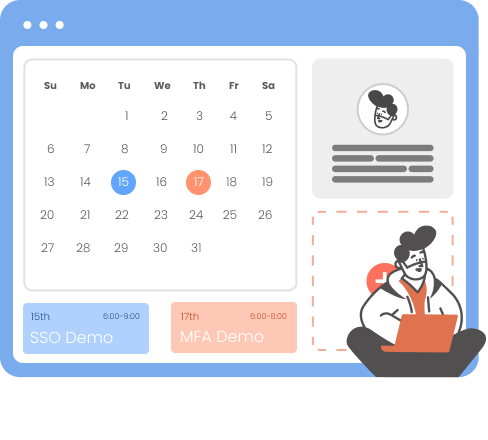G Suite (Google Workspace) Restriction for Enterprise Browser Extensions
Cloud apps like G Suite, Dropbox, etc. provide improved productivity, cost-saving, process efficiency, improved collaboartion, etc to an organisation. Though this feature has its own advantages, its misuse should not be neglected.
1. What is IP Restriction?
In cloud computing, IP-based access control allows you to impose an IP restriction policy that allows IT administrators to limit user access to corporate data to one or more defined IP addresses. This ensures that no confidential information is accessible using an unsecured, public, or unregistered IP address.
Features:
- IP limitation policy can be applied to a single user, a subset of users, or the entire organisation.
- Policy-based restrictions provide the business with fine-grained control.
- Customize user mapping across one or more IP addresses.
- This feature does not require any firewall settings or local installation.
- IP restriction policies are simple to setup.
2. What is Browser Restriction?
In cloud computing, browser restriction feature prevents end-users from accessing confidential files and folders with any web browser. Through this, users can access company data through browsers that have been specified by an enterprise's IT administrator through policy.
Features:
- Applicable to any popular web browser, including Mozilla Firefox, Safari, Internet Explorer, Chrome, and others.
- Google Chrome is managed through the Google admin chrome management console.
- Chrome Management is used to push applications and extensions.
- Granular control policies based on organisational units.
- Easy and automated rollout
3. What is Device Restriction?
Device Restriction prevents users from accessing business data from devices that are unknown, public, or unauthorised. This assures that no corporate data is copied, transferred, infected with viruses, or otherwise transferred to or from a personal or public device.
Features:
- The policy is set up with the device's MAC Id.
- Unless IT admin specifies otherwise, business data from personal machines is not allowed.
- Every day, a policy violation report is sent to the administrator.
- Self-service rollout.
- Supports Linux, MAC, Windows, Chromebook.
4. What is Geo-Fencing?
With the Geo-location limitation / Geo Gencing tool, you may create virtual work limits for your users to prevent illegal data access from unfamiliar areas.
Features:
- Users can only view business data from one or more specific areas, such as a city or country.
- Policy-based restrictions enable extremely fine-grained control.
- Apply policies to a single person, a group of users, or the entire company.
- There are no additional apps needed; only the device's location must be activated.
5. What is Time Restrictions?
Time Restrictions allows you to prevent people from accessing corporate data at odd hours or outside of business hours. Ensure that business data is only accessed on specific days and times.
Features:
- You can specify the days of the week and the time in the policy.
Eg, Monday to Friday, from 9 am to 5 pm
- Multiple time zones are supported.
- No extra app or extension required
- Apply policy to a single person, a certain department, or the entire company.
